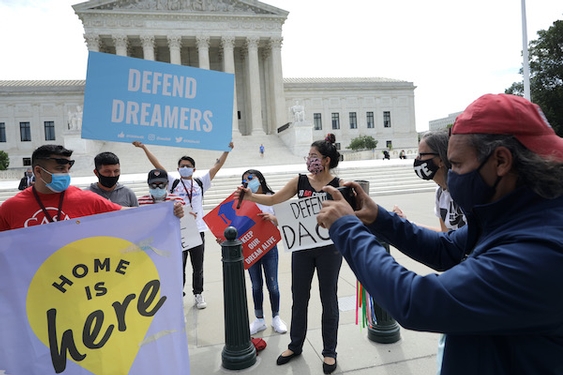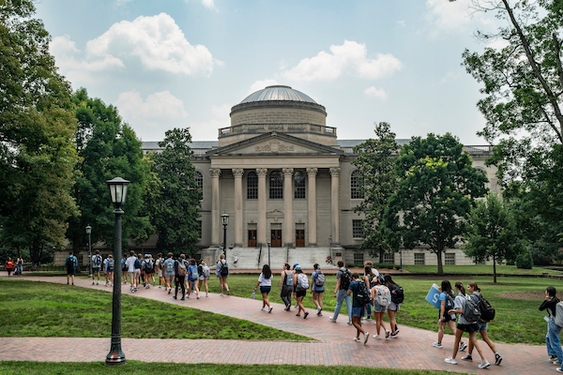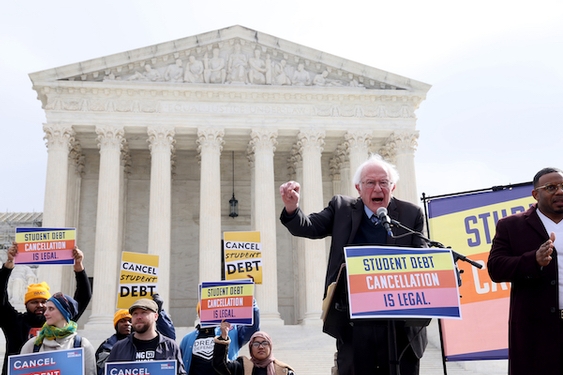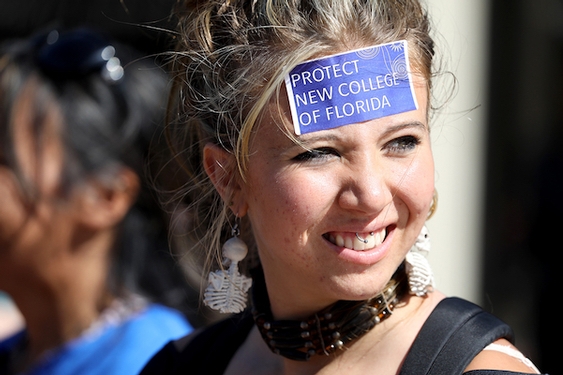Immigration advocates are praising the Biden administration for including a proposal to expand Pell Grant eligibility to some undocumented immigrants brought to the U.S. as children in its fiscal 2022 budget request.
“We celebrate the inclusion of DACA recipients in Pell Grants and we recognize the administration’s commitment to undocumented students,” Juliana Macedo do Nascimento, state and local policy manager at United We Dream, an organization that advocates for immigrant youth, said in a statement. “The cost of admission remains a barrier to undocumented students hoping to go to college.”
The budget blueprint, released April 9, would expand Pell eligibility to participants in the Deferred Action for Childhood Arrivals program, in addition to raising the maximum Pell Grant amount by $400. The maximum for the 2021-22 school year is $6,495.
Federal Pell Grants are awarded to low-income students, who can use the funds to pay for postsecondary education at any of around 6,000 participating postsecondary institutions.
If enacted, the proposal would advance the Biden administration’s goal of expanding legal opportunities for undocumented immigrants, even as a more comprehensive overhaul of the immigration system remains stymied by partisan division.
A 2020 report by New American Economy and the Presidents’ Alliance on Higher Education and Immigration estimated that more than 450,000, or around 2 percent, of all students in the higher education system are undocumented immigrants.
Immigration advocates, many of whom want to see congressional Democrats include immigration provisions in a future infrastructure bill or eliminate the filibuster to more easily move the party’s priority legislation, hope the proposal will be one of many changes Democrats seek while they hold power in Washington.
“Unfortunately, the Pell Grant eligibility only applies to DACA recipients, leaving the hundreds of thousands of undocumented young people who are ineligible for DACA still without access to federal financial support or permanent protections from deportation,” Macedo do Nascimento said.
In March, Republicans mostly voted against a House bill to provide a pathway to citizenship to undocumented immigrants brought to the U.S. as children. The measure passed that chamber narrowly but is unlikely to earn Senate approval. They also opposed any potential Pell expansion to undocumented immigrants.
“Giving handouts for illegal aliens to pursue taxpayer-funded education flies in the face of his concern for the student debt crisis in this country,” Rep. Virginia Foxx, R-N.C., the ranking member of the House Education and Labor Committee, said in a statement, adding the proposal would “take opportunities away from American students.”
Currently, undocumented immigrant students are not eligible for most public postsecondary aid, although many states allow those students to access in-state tuition rates or state financial assistance. Other states explicitly bar undocumented students from tapping in-state tuition benefits. South Carolina and Alabama prohibit undocumented students from attending public state institutions altogether.
As recently as December, Congress has shown its willingness to expand Pell eligibility. In the fiscal 2021 omnibus spending law, lawmakers reinstated Pell Grants for incarcerated students, lifting a prohibition originally enacted in the 1994 crime law, and restored Pell Grant eligibility for students defrauded by their institutions.
“The budget request recognizes the urgent need to make higher education more affordable for students and families,” said Rep. Robert C. Scott, D-Va., chairman of the House education panel. “The proposal expands eligibility for Pell Grants and increases their value.”
___
(c)2021 CQ Roll Call
Distributed by Tribune Content Agency, LLC












